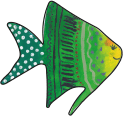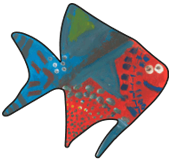Curriculum
The Learning Experience Approach – Curriculum 2020/2021
Each learning experience is rooted in just one area of the non-core curriculum. This allows children time to explore and develop key knowledge and skills in these areas. Reading and writing underpin each learning experience and are used as tools to communicate the key concepts to a wider audience. It may be appropriate to use another area of the non-core curriculum to enrich the learning taking place but it would not be a key focus, for example using art to understand and communicate historical concepts.
An exciting and engaging hook into learning makes the experience simply irresistible and the children know from the outset exactly what they are setting out to achieve in the form of an End Goal. A baseline that has been warmed up provides the opportunity to ensure that the steps of learning are personalised, taking into account the starting point of each child to achieve the highest possible quality outcome.
Children are given purposeful opportunities to write for real audiences and take their writing through to a publication stage. On a termly basis they have the opportunity to use their learning to actively ‘make the world a better place’.
Children receive personalised, written feedback at the base-line and end-goal stage of the learning experience that outlines their next step of learning- the single thing that will make the biggest difference to progressing as a writer. At other key moments during the learning experience, staff use their professional judgement to give meaningful feedback about next a child’s steps of learning- this may be given in a variety of ways: small group, verbal, 1:1 conferencing, written.
We recognise that successful learners are determined, courageous, collaborative, positive and reflective. The nurture and development of these behaviours underpin each of our bespoke learning experiences and go beyond the classroom.
Each year, the school joins together for three whole school learning experiences. These give the teaching team the opportunity to work collaboratively, develop professionally and in turn result in areas of our pedagogy for learning being developed.
The Ultimate Goal of the Fishbourne CE Primary
Curriculum Map
We share a collective belief that:
‘Education should be about broadening minds,
enriching communities
and advancing civilisations.
Ultimately it is about leaving the
world a better place than we found it.’
Our school vision is:
‘There is only one you in this great big world…
…make it a better place to be.’
Our curriculum mapping tool holds our school vision at its heart. It is bespoke to meet the needs of Fishbourne CE Primary School and will be reviewed and refined regularly. It is both creative and rigorous. It goes beyond the National Curriculum to secure a robust approach to the development of knowledge and skills in all areas of the non-core curriculum.
Each map covers the following areas:
1) An ultimate end goal for each area of the curriculum: What do we want our artists, musicians, programmers, theologians, historians, geographers and scientists to be able to do by the time they leave Fishbourne CE Primary?
2) Coverage of the National Curriculum – addressing the basic requirements of the NC.
3) Procedural Knowledge – the development of the skills through the curriculum area – building on the skills that have been built and preparing the children for what is coming next.
4) Propositional Knowledge – the key concepts or knowledge that the children will be able to recall.
5) Vocabulary – the vocabulary that the children will need to be able to communicate concepts.
6) Experiences – the experiences that the children will have had the opportunity to take part in during their time at Fishbourne.
7) Making the world a better place… - how the children can apply the knowledge and skills acquired to make the world around them a better place to be.








